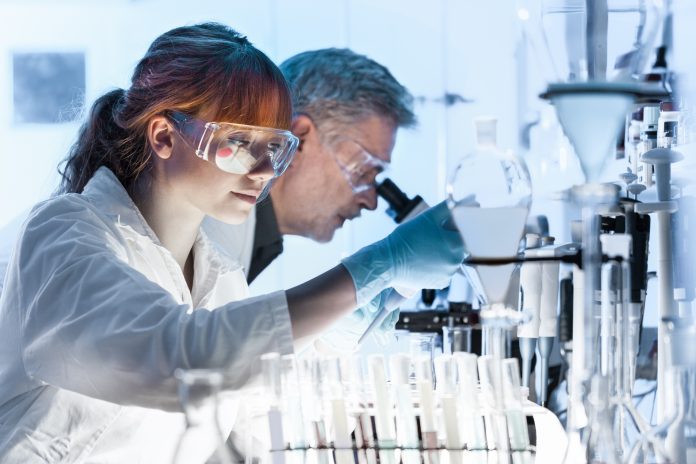World-first research by Monash University in Australia has been able to detect positive COVID-19 cases using blood samples in about 20 minutes, and identify whether someone has contracted the virus.
In a discovery that could advance the worldwide effort to limit the community spread of COVID-19 through robust contact tracing, researchers were able to identify recent COVID-19 cases using 25 microlitres of plasma from blood samples.
The research team, led by BioPRIA and Monash University’s Chemical Engineering Department, including researchers from the ARC Centre of Excellence in Convergent BioNano Science and Technology (CBNS), developed a simple agglutination assay – an analysis to determine the presence and amount of a substance in blood – to detect the presence of antibodies raised in response to the SARS-CoV-2 infection.
Positive COVID-19 cases caused an agglutination or a clustering of red blood cells, which was easily identifiable to the naked eye. Researchers were able to retrieve positive or negative readings in about 20 minutes.
While the current swab / PCR tests are used to identify people who are currently positive with COVID-19, the agglutination assay can determine whether someone had been recently infected once the infection is resolved – and could potentially be used to detect antibodies raised in response to vaccination to aid clinical trials.
Using a simple lab setup, this discovery could see medical practitioners across the world testing up to 200 blood samples an hour. At some hospitals with high-grade diagnostic machines, more than 700 blood samples could be tested hourly – about 16,800 each day.
This world-first research was published on Friday in ACS Sensors.
A patent for the innovation has been filed and researchers are seeking commercial and government support to upscale production.
To download a copy of the research, visit doi.org/10.1021/acssensors.0c01050.
To watch a video of this research in action, visit youtube.com/watch?v=9WBQUC43u9Q&feature=youtu.be.









